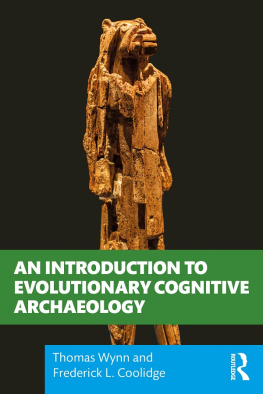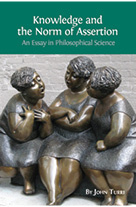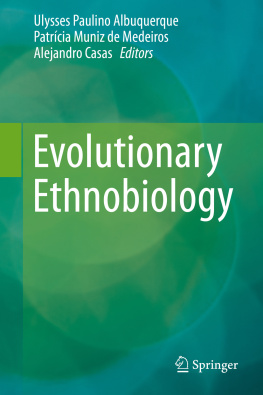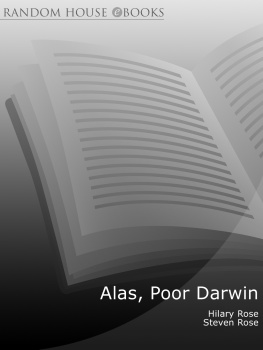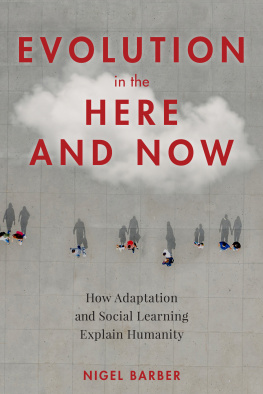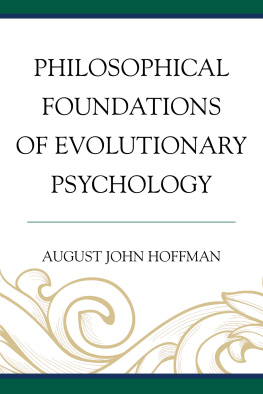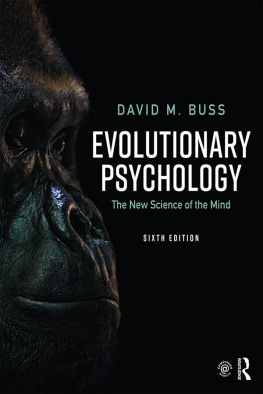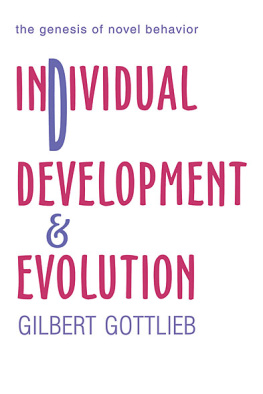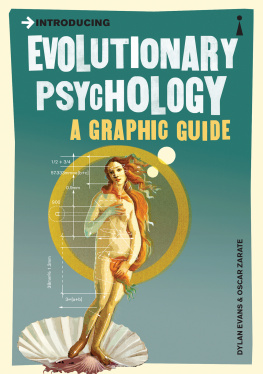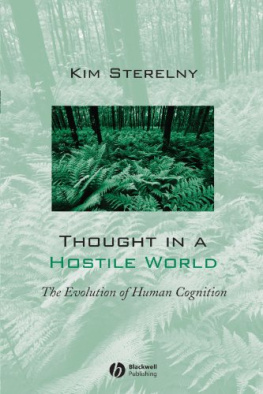The Debated Mind
Dedicated to Jorun
The Debated Mind
Evolutionary Psychology versus Ethnography
Edited by
HarveyWhitehouse
First published 2001 by Berg Publishers
Published 2020 by Routledge
2 Park Square, Milton Park, Abingdon, Oxon OX14 4RN
605 Third Avenue, New York, NY 10017
Routledge is an imprint of the Taylor & Francis Group, an informa business
Harvey Whitehouse 2001
All rights reserved. No part of this book may be reprinted or reproduced or utilised in any form or by any electronic, mechanical, or other means, now known or hereafter invented, including photocopying and recording, or in any information storage or retrieval system, without permission in writing from the publishers.
Notice:
Product or corporate names may be trademarks or registered trademarks, and are used only for identification and explanation without intent to infringe.
Library of Congress Cataloging-in-Publication Data
A catalogue record for this book is available from the Library of Congress.
British Library Cataloguing-in-Publication Data
A catalogue record for this book is available from the British Library.
Typeset by JS Typesetting, Wellingborough, Northants.
ISBN 13: 978-1-8597-3427-8 (hbk)
Contents
Harvey Whitehouse
Dan Sperber
Pascal Boyer
Henty Plotkin
Tim Ingold
Christina Toren
Charles W. Nuckolls
Harvey Whitehouse
Guide
Dan Sperber () is Directeur de Recherche at the Centre National de la Recherche Scientifique, Paris. He is associated particularly with the fields of social anthropology and cognitive science. His previous books include Rethinking Symbolism, On Anthropological Knowledge, Explaining Culture, and, with Deirdre Wilson, Relevance.
Pascal Boyer () is Charge de Recherche at MRASHDynamiques du Langage, Lyon. He is associated particularly with the fields of religious anthropology and cognitive science. His previous books include Barricades Mystrieuses et Piges Pense, Tradition as Truth and Communication, The Naturalness of Religious Ideas, and Cognitive Aspects of Religious Symbolism.
Henry Plotkin () is Professor of Psychology at University College London. He is associated particularly with the fields of evolutionary psychology and philosophy of science. His previous books include The Role of Behaviour in Evolution, Darwin Machines and The Nature of Knowledge, and Evolution in Mind.
Tim Ingold () is Professor of Social Anthropology at Aberdeen University. He is associated particularly with the fields of anthropology and evolutionary biology. His previous books include Hunters, Pastoralists, and Ranchers, Evolution and Social Life, Companion Encyclopedia of Anthropology, Key Debates in Anthropology, and, with David Riches and James Woodburn, Hunters and Gatherers (Vols. 1 and 2).
Christina Toren () is Reader in Social Anthropology at Brunei University, She is associated particularly with the fields of social anthropology and child cognitive development. Her previous books include Making Sense of Hierarchy and Mind, Materiality and History.
HarveyWhitehouse
Social scientists are notoriously scornful of the naive reductionism of socio-biological and psychological perspectives on culture while those working in fields of biology and cognitive science have often been exasperated at the reluctance of social/cultural theorists to recognize the explanatory power and relevance of naturalistic models in the study of human behaviour. One of the greatest controversies fuelling this unproductive situation has been the so-called nature/nurture debate. Crudely, if it could have been demonstrated that cultural phenomena are the infinitely variable consequences of'learned' mental abilities then the social scientists would have been vindicated in their dismissal of most biological perspectives. Conversely, if it could have been shown that certain cultural things are shaped by 'innate' features of mental processing then the successful encroachment of biologists would have been assured.
The debate which unfolds in this volume is rather more subtle. The theories advanced in are founded on conventional models in evolutionary psychology and cognitive science, in which the recognition of both genetic and environmental causes of neurological/mental development is axiomatic. At the 'nativist' end of the spectrum, some theorists (e.g. Sperber, this volume) argue that the mind-brain is richly endowed with genetically specified mechanisms for the discrimination and processing of inputs. Nevertheless, Sperber's notion of 'genetic specification' is not intended to mean a blueprint for mental activity but rather a set of instructions (rather like computer hardware) that must be augmented by information from the environment (the equivalent of computer software) in order to become operational. At the other end of the spectrum, there are 'empiricists' who envisage the neonate as a tabula rasa, bombarded by a flux of inputs that can only be discriminated and conceptualized through experience and learning, without the guidance of genetically specified equipment capable of anticipating some of that input. Between these two positions, cognitive science offers a vast array of competing perspectives, attributing varying degrees of importance to both genetic and environmental factors in relation to specific aspects of cognitive development.
In relation to some of the arguments put forward in neural networks). They would argue that current evidence from cognitive science points to at least some innate biases but, even if that trend was reversed, their selectionist models of culture would still stand.
It is primarily with regard to the production of specific accounts of cognitive evolution that the question of innate capacities and dispositions becomes important to resolve. Here, the central question is whether distinct computational capacities are genetically specified, and thus outcomes of distinguishable evolutionary pressures under natural selection (as Sperber, in particular, suggests), or whether our task is to account for the evolution of rather more undifferentiated, general-purpose cognitive equipment. But, however we answer such questions, genes, environment, and culture stand in complex relations of mutual causation. As Plotkin points out (), not only are phenotypic properties only ever part-caused by genes, but these properties affect the natural selection of genes, and hence the phenotypic properties of future generations themselves. Perhaps the most obvious cultural innovation influencing the course of evolution was the development of language, but Plotkin also mentions migration, genocide, warfare, and agricultural technologies. Thus, according to Plotkin, biology and culture must be seen as a 'twoway street' of causation in evolution.
Meanwhile, the contributors to with regard to the cognitive causes of cultural phenomena explain considerably less than they might due to the principled, but entirely unnecessary, neglect of unconscious emotional conflict and repression.


